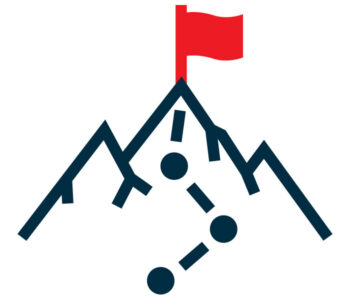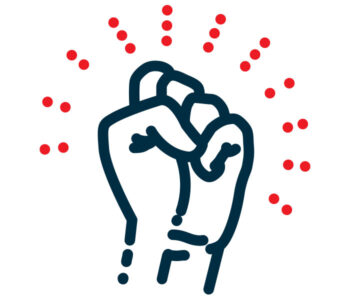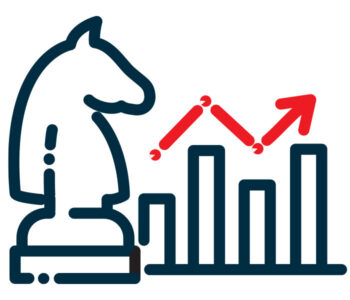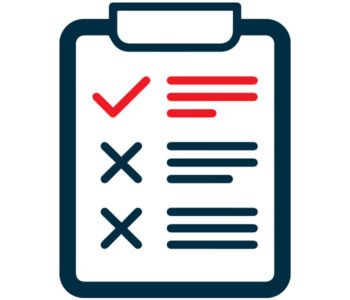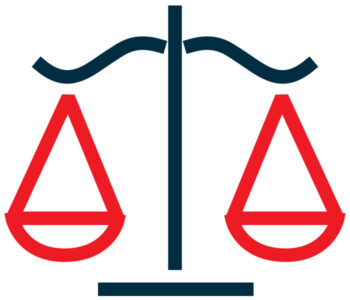
Louis always made a habit of being responsive. Faculty in his department at another prominent university had lauded the up-and-coming professor for juggling prompt emails to members of his research team while fulfilling an overloaded slate of academic responsibilities. He even was invited to prepare a lecture on work-life balance.
Then came the accusation of research misconduct. A grad student working under Louis accused him of fabricating data for a conference proposal. Once an asset, Louis’ responsiveness quickly exacerbated the situation when an argument about the accusations broke out on Twitter. Soon, his employer opened a formal inquiry into the allegations. The proceedings found that Louis’ actions did not include research misconduct, but did show gaps in knowledge around research ethics.
Then came the repercussions. Seemingly overnight, he had become a pariah in his department, his career at a top-tier research university was in peril, and pressure mounted to discipline him. The university enumerated a list of actions Louis needed to complete to stay in good standing. Among them was participating in the Professionalism and Integrity Program at Washington University.
Since 2013, the program, known as the P.I. Program, has been rehabilitating the careers of researchers nationwide who have found themselves the subjects of research compliance investigations. It is the only program of its kind in the country. Using a combination of root cause analysis, one-on-one coaching and career development planning, the group provides researchers with a framework, training and a path forward to prevent future violations.
The P.I. Program fills a void in the world of academia, where few options exist for researchers who run afoul of ethics and integrity guidelines. To date, more than 120 researchers, from social scientists to wet-lab researchers, have participated. Several program alumni have gone on to become ethics and integrity point people in their respective departments.
The program is led by founder and Executive Director James M. DuBois, PhD, ScD, the Steven J. Bander Professor of Medical Ethics and Professionalism, professor of psychology and executive director of the Bioethics Research Center in the Division of General Medical Sciences, and Co-director Alison L. Antes, PhD, associate professor of medicine in the Division of General Medical Sciences and director of education for the Bioethics Research Center.
“When I was putting together my proposal to launch the program, a mentor told me, ‘This is a good thing you’re doing,’” DuBois said. “‘You’re going to save careers.’ And I said, ‘That’s good, but are these careers really worth saving?’ That answer is yes — we’re getting people who are really good researchers to fundamentally change how they do things for the better and continue doing research.”
In 2012, DuBois noticed the dearth of options institutions had for employees who violated guidelines and regulations. Institutions could either fire employees or reprimand them and require them to undergo generic training on rules.
Rather than devising impersonal training modules, DuBois used his dual doctorate degrees in psychology and philosophy to craft an approach that specifically accounts for a client’s circumstances and measures whether the approach is effective. “I always imagined this as a behavior-change program,” he said.
Since its inception as a three-day workshop, the P.I. Program has expanded to six or more sessions spaced over several months with a one-on-one coach.
Helping researchers who have violated data integrity or compliance rules can be a hard sell to academic institutions. Because of its price and time commitment, DuBois spent the program’s early years struggling to recruit clients at various conferences for animal welfare and research integrity officers. He even changed the name from the stigmatizing Restoring Professionalism and Integrity in Research (RePAIR) to the P.I. Program.
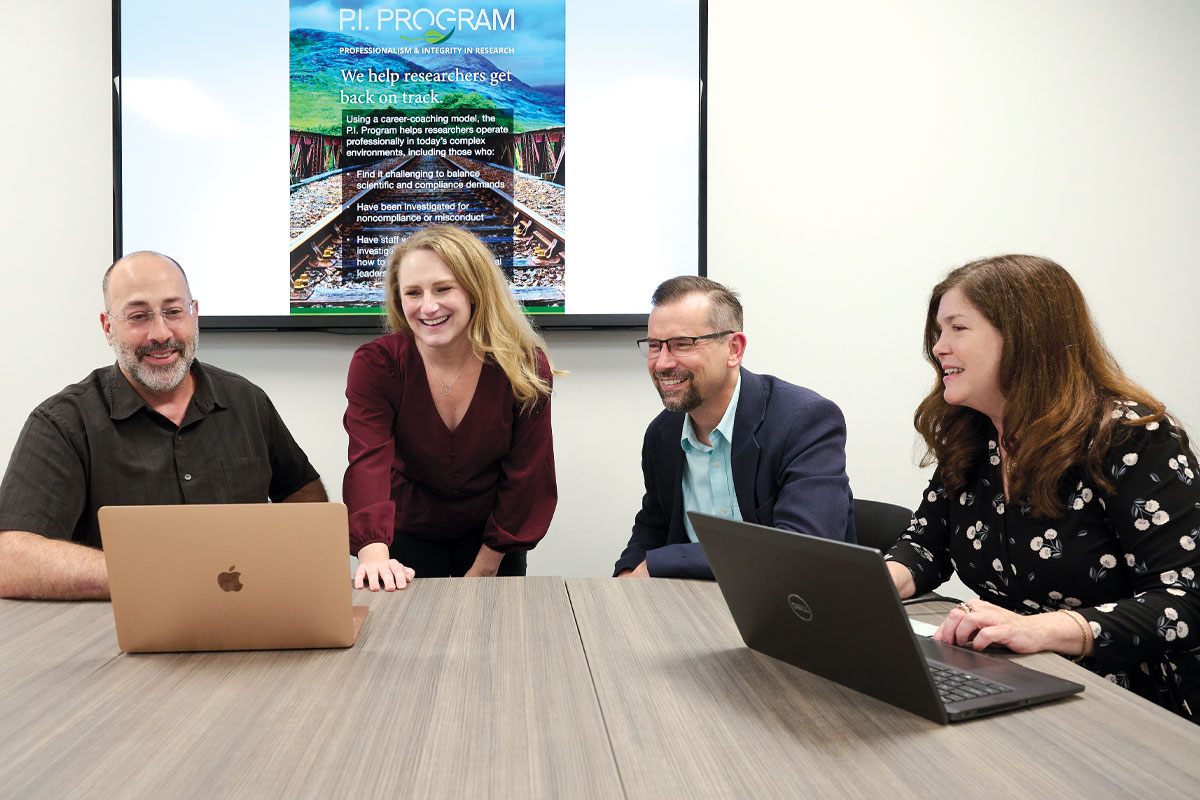
“Early on, we published an article in Nature, which got picked up by other media,” DuBois said. “The story got so many hateful comments: ‘Funding is so competitive right now. Really good researchers are having a hard time making it. Why are we spending extra money on cheats, on people who cut corners and can’t do good science?’”
Using an involved intake process, the P.I. Program team identifies candidates who show promise, but perhaps were unprepared to stay on top of a demanding research career. Reasons for enrollment have included violations of human subjects protection and animal care protocols, conflict of interest policies, data integrity expectations, plagiarism and failures to provide oversight of others. Often these violations occur because the researchers are overextended, were unfamiliar with the rules, or simply did not prioritize compliance. In short, researchers who pass through the P.I. Program are those who, with additional investment, still have a chance at producing quality work if they can improve specific aspects of how they approach research.
One-on-one coaching
Sometimes, however, those who need to be most convinced of the program’s utility are the clients themselves.
The accusations against Louis’ academic integrity had taken a toll on his mental health. By the time of his first meeting in the P.I. Program, he was experiencing a complicated mix of anger, incredulity and embarrassment. Antes and DuBois said this is how they commonly receive clients at the beginning of the curriculum. Most have never had disciplinary action before.
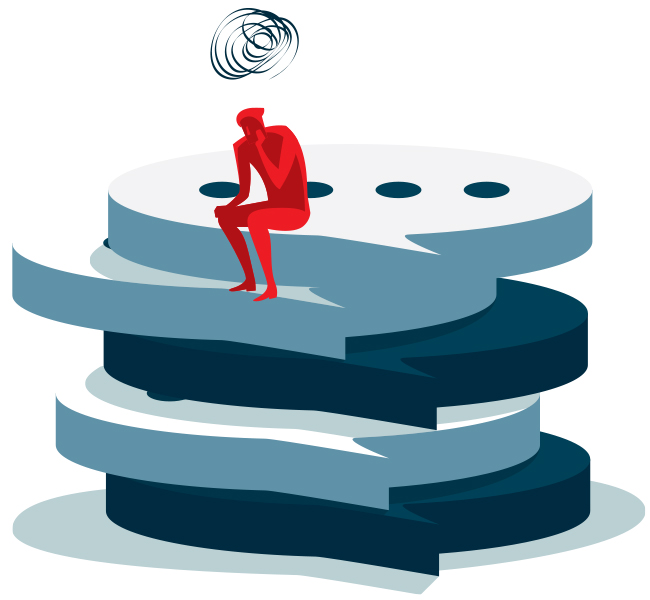
The program starts with a debrief led by one of its four trained coaches, each with research experience themselves, to gauge how the client feels about the situation and which interventions are most likely to work.
“Steve was almost like a therapist for me,” Louis said of meeting his coach Steven J. Mennerick, PhD, a Washington University neuroscience professor. “I was unenthusiastic because I thought it was ridiculous I was there, but I also felt that I should give it a fair shot. He let me vent.”
Such willingness to listen builds the trust needed early in the process to confront integrity issues.
“They’ve already been told by their institution that there’s been a problem and they’re already in trouble. We don’t need to retell them that,” Antes said. “Sometimes participants have said, ‘I thought I was just going to come to this and you were just going to tell me what I did wrong and how I’m bad.’”
Coaches work through a series of learning goals over six or more sessions interspersed with homework, worksheets and exercises. Coaches focus heavily on building trust with clients, and fostering critical self-reflection on how they manage time, people, projects and stress. The program involves elements such as role-playing, tests that assess workplace strengths and tasks that advance the client’s individual goals. For example, clients have written manuals to welcome lab members and set expectations, adopted data management protocols and established training procedures for team newcomers.
NOTE: The strategies often overlap, e.g., testing assumptions is often a good way to manage emotions, and it can lead to seeking help. Want to be SMARTER? Add “Evaluate” outcomes of your actions and “Revise” your approach based on outcomes.
A central focus is identifying strengths and weaknesses while honing a professional development plan, or PDP. Items on the plan must follow a SMART approach to solving problems: Seeking help, Managing emotions, Anticipating consequences, Recognizing rules and Testing assumptions. The PDP also focuses on developing relationships — for example, with compliance offices or mentors — and leadership and management skills. It serves both as a roadmap for a researcher’s next steps and a concrete document showing a client’s home institution how much progress has been made, fostering further discussion.
Louis realized that, because research had come relatively easy to him, he rarely considered long-term goals. Without solidified, strategic career goals, parts of his management training atrophied. He developed a plan incorporating key actions, such as participating in ongoing management seminars at his institution and mending the fissures that the disciplinary action caused between him and others in his department.
The pressures of research
Often, however, interventions for high-powered, leading researchers can involve subtracting responsibilities just as much as adding new ones. “One client was juggling many grants to fund his research,” Antes said. “A big part of his PDP was to reduce how many projects he was leading at one time.” Mounting workloads and daily pressures often are a focal point of discussions. Investigators must keep a research lab running and manage a web of professional responsibilities, often with little compensation for their time spent after hours.
“The type of counseling these individuals get in this program should really be a part of faculty orientation for any junior faculty coming to the institution.”
Despite — and, in many cases, because of — the long hours, many junior researchers find themselves ill-prepared to take on more senior-level responsibilities. Young researchers often learn lab leadership skills in a very informal, serendipitous way.
“It’s a time of uncertainty, and it’s also a time of excitement and idealism,” Antes said. “It’s sort of like there’s a secret rulebook or something, and some people get to know what’s in the secret rulebook and other people don’t. Some people are lucky to have other young people starting up at, say, the lab next door at the same time as them, and they support each other.”
Louis found that many of the topics he covered with his coach, such as handling personnel issues, setting professional growth goals and establishing good lab practices, aren’t traditionally taught in graduate training.
“There’s this assumption that because people received advanced degrees, they in fact know how to run a lab and to manage people to take on additional responsibilities like managing grants, and that tends not to be true,” said Reginald W. Miller, DVM, dean of research operations and infrastructure and senior research integrity officer at Icahn School of Medicine at Mount Sinai. His institution has sent two professors to the P.I. Program in the last five years.
“The type of counseling these individuals get in this program should really be a part of faculty orientation for any junior faculty coming to the institution,” he said.
WashU is particularly fortunate to be the home base for the P.I. Program. It has given School of Medicine researchers a platform to more closely examine many of these issues. Several WashU research training offerings now include lectures by program leaders and the program serves as an expert source to help investigators as they progress in their responsibilities.
DuBois said regulatory oversight systems coupled with the demand for innovation and creative productivity generate unique issues for researchers seldom seen in other professions.
“From PIs, we want the creativity of an artist and the detail orientation of an accountant,” he said. “They have to be able to pose novel questions, exciting questions, innovative approaches, or they won’t get funded. They have to have this creativity and this vision, but we also want them to have the detail orientation, and not just regarding their own scientific data, but regarding budgets, regarding compliance and documentation, and often these aren’t things they’re interested in at all.”
Identifying best practices
To better understand the best practices that exemplary researchers employ, the program also launched the Exemplars Project. The program solicited nominations for top U.S. investigators and conducted interviews with selectees. In 2018, Antes published the project results and identified behaviors that distinguish standout researchers. One finding that stuck out: Successful research leaders keep personal frustrations or negativity from pervading the culture of the lab.
“Treating logistics like regulatory compliance as a burden can send a signal to the rest of the team that these parts of research are unimportant,” she said. “Typically, data problems like fabrication and falsification are often from other lab members, like grad students or post-docs, but the investigator is responsible for that.”
Successful researchers also are more intentional about how they interact with their teams, Antes said, celebrating members’ achievements and mindfully keeping tabs on their progress. Failure to do so might lead to lab environments where team members are afraid to make mistakes or provide ample conditions for lapses in compliance.
Looking ahead, the two hope to delve further into other underlying factors. The first is understanding the role culture plays in the lab environment. The P.I. Program works with institutions in the U.S., and approximately half of the clients were born outside the country.
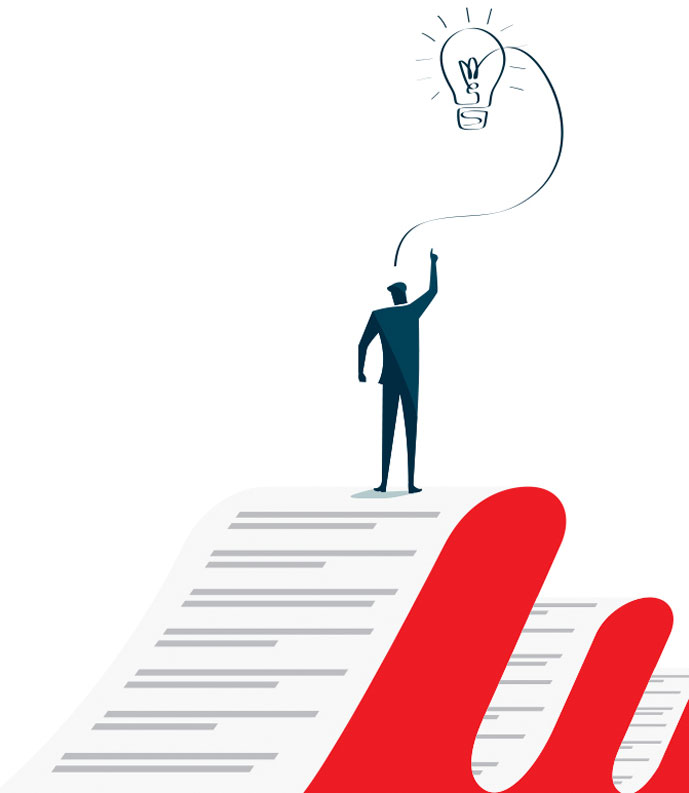
In one study, Antes, DuBois and others developed a measure that assessed how researchers regard rules in science. They administered it to 101 U.S.-born researchers and 102 researchers born outside the country. U.S.-born researchers were significantly better at distinguishing between the seriousness of violating U.S. research regulations and violating ideals of science. The U.S.-born researchers also had a better sense of how university research integrity officers would view different types of infractions. The researchers are investigating what might drive these differences.
The researchers also identified time periods when stressors make it more likely for a scientist to cut corners, such as pivoting to a new kind of research or transitioning from junior researcher to principal investigator.
The group’s work has spawned dozens of research articles examining what exactly makes a good researcher and last year was awarded a $2 million grant from the National Institute of General Medical Sciences to develop a training program for early-career investigators.
This program, Compass, is remotely delivered and launches this fall. It includes modules for leading other scientists, as well as mentoring for six months. The goal is to democratize research leadership training and make such career guidance more widely accessible, particularly to underrepresented groups in research.
Louis’ time with the P.I. Program has renewed his attention to seek out further training. “When you think about academics, we get the training we get from our mentor, often very little other professionalization, and after that no one ever supervises you again. With all of the pressures we have, there’s close to zero incentive to work on these issues ourselves,” Louis said.
“Over the course of the six meetings and the work in between, I came to realize that not only was it not a waste of my time, but many of my colleagues, perhaps most professors, would benefit from something like this,” he added.
To learn more, visit: integrityprogram.org
Published in the Autumn 2022 issue



